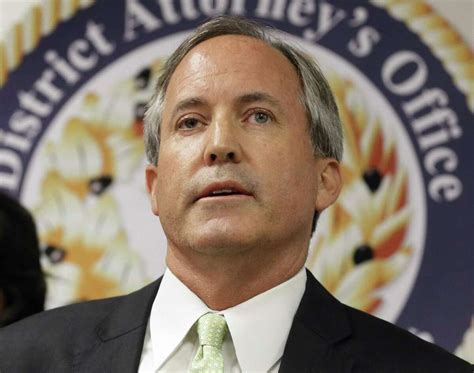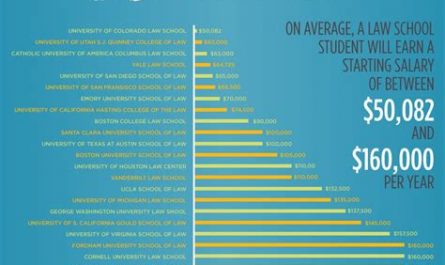
Introduction
Hey readers, welcome to our in-depth exploration of the role of attorneys general in challenging federal laws. These legal guardians of our states play a crucial role in protecting the rights of their citizens and ensuring that federal laws align with the principles of our Constitution. In this article, we’ll dive into the intricacies of their responsibilities, the legal framework they operate within, and the impact of their actions on our nation’s legal landscape.
The attorneys general serve as the top legal officers of their respective states, responsible for enforcing state laws and representing the interests of the state in legal matters. They possess the unique authority to challenge federal laws that they believe infringe on state sovereignty or violate the rights of their citizens. This power, known as the "parens patriae" doctrine, empowers them to act as the guardians of their states, safeguarding their interests against potential federal overreach.
Section 1: The Legal Basis for Attorneys General Challenges
Sub-Section A: The Supremacy Clause and the Tenth Amendment
The Supremacy Clause of the U.S. Constitution establishes the supremacy of federal laws over state laws in cases where there is a conflict. However, the Tenth Amendment reserves all powers not explicitly delegated to the federal government to the states or the people. Attorneys general often rely on the Tenth Amendment to challenge federal laws that they believe exceed the constitutional authority granted to the federal government.
Sub-Section B: Case Law and Precedents
In addition to the Constitution, attorneys general ground their challenges in case law and established precedents. Landmark Supreme Court decisions, such as Marbury v. Madison, have affirmed the power of the federal courts to declare laws unconstitutional. Attorneys general frequently cite these precedents to bolster their arguments and demonstrate the legal basis for their challenges.
Section 2: The Scope of Attorneys General Challenges
Sub-Section A: Types of Federal Laws Challenged
Attorneys general have challenged federal laws across a wide spectrum of issues, including healthcare, immigration, environmental regulations, and taxation. They often target laws that they believe impose undue burdens on their states, undermine state sovereignty, or infringe on the rights of citizens.
Sub-Section B: The Impact on Federal Policies
The challenges brought by attorneys general have had a significant impact on federal policies. In some cases, they have forced the federal government to rethink its approach or modify its laws. For instance, challenges to the Affordable Care Act and the Trump administration’s travel ban resulted in changes to the implementation and enforcement of these policies.
Section 3: Recent Developments and Notable Cases
Sub-Section A: The Rise of Multi-State Lawsuits
In recent years, attorneys general have increasingly banded together to file multi-state lawsuits against the federal government. This strategy allows them to pool resources and present a united front against federal actions they deem unlawful. Some notable examples include the lawsuits challenging the Environmental Protection Agency’s Clean Power Plan and the Department of Justice’s transgender bathroom guidance.
Sub-Section B: The Role of the Supreme Court
The Supreme Court plays a pivotal role in adjudicating the challenges brought by attorneys general. The Court’s decisions on these cases can have far-reaching implications for the balance of power between the federal and state governments. In recent years, the Court has issued several rulings that have both expanded and limited the authority of attorneys general to challenge federal laws.
Table: Attorneys General Challenges to Federal Laws
| Case | Issue | Year | Result |
|---|---|---|---|
| Texas v. U.S. | Affordable Care Act | 2012 | Supreme Court upheld key provisions |
| New York v. U.S. | Trump administration travel ban | 2017 | Supreme Court allowed ban to take effect with modifications |
| California v. U.S. | Environmental Protection Agency’s Clean Power Plan | 2016 | Supreme Court stayed implementation of the plan |
| Texas v. U.S. | Department of Justice’s transgender bathroom guidance | 2016 | Supreme Court declined to review lower court ruling |
| Mississippi v. U.S. | Biden administration student loan forgiveness plan | 2023 | Supreme Court blocked implementation of the plan |
Conclusion
The role of attorneys general in challenging federal laws is an essential aspect of our constitutional system of checks and balances. By safeguarding the rights of their states and citizens, attorneys general help ensure that the federal government operates within the bounds of its authority and respects the principles of federalism. Their continued vigilance and legal expertise are crucial for maintaining a balance between the powers of the federal and state governments and protecting the rights of all Americans.
For further reading on related topics, check out our other articles on:
- The Role of the Supreme Court in Interpreting Federal Laws
- The Limits of Federal Power in the United States
- The History of the Supremacy Clause
FAQ about Attorney General’s Role Challenging Federal Laws
1. Can the Attorney General challenge federal laws?
Yes, Attorneys General have the authority to challenge federal laws they believe violate the Constitution or overstep federal authority.
2. What is the basis for challenging a federal law?
Attorneys General can challenge federal laws based on constitutional violations (e.g., infringe on state’s rights or individual rights) or federal overreach (e.g., exceeding congressional powers).
3. What is the process for challenging a federal law?
Attorneys General typically file lawsuits in federal court, arguing the specific constitutional or legal reasons for their challenge.
4. What happens if an Attorney General wins a challenge?
If successful, the challenged federal law may be declared unconstitutional or unenforceable, impacting its application nationwide.
5. Why do Attorneys General challenge federal laws?
Attorneys General represent their states and citizens and may challenge federal laws perceived as harmful to state interests or individuals.
6. How common are Attorney General challenges to federal laws?
The frequency of challenges varies depending on political and legal factors, but it is a well-established practice.
7. Are all Attorney General challenges successful?
Not all challenges are successful. Courts may uphold the federal law if they find it constitutional and within federal authority.
8. Do Attorneys General only challenge federal laws from the opposing political party?
Not necessarily. Attorneys General may challenge federal laws from both sides of the political spectrum, depending on their interpretation of the law’s constitutionality.
9. Can Attorneys General collaborate with one another in challenges?
Yes, Attorneys General from multiple states may unite to challenge federal laws that affect their collective interests.
10. What is the role of the Supreme Court in Attorney General challenges?
The Supreme Court is the ultimate authority in interpreting the Constitution and can overturn lower court rulings on Attorney General challenges.




